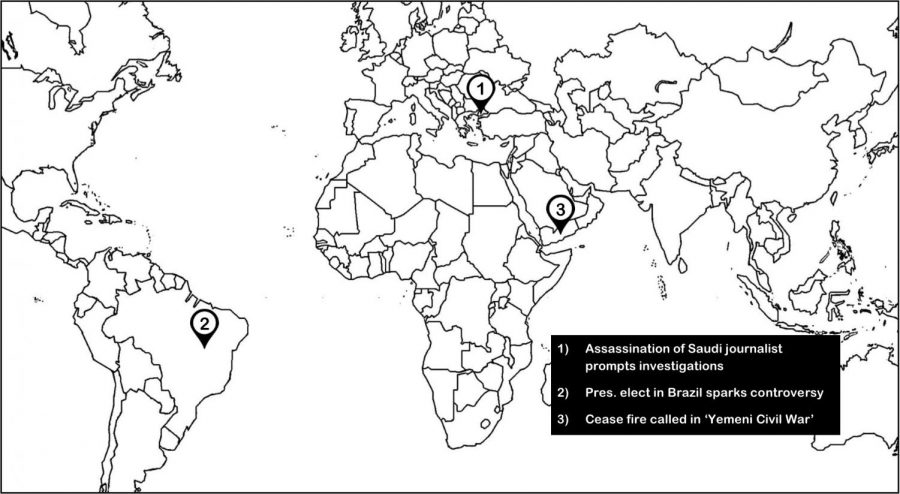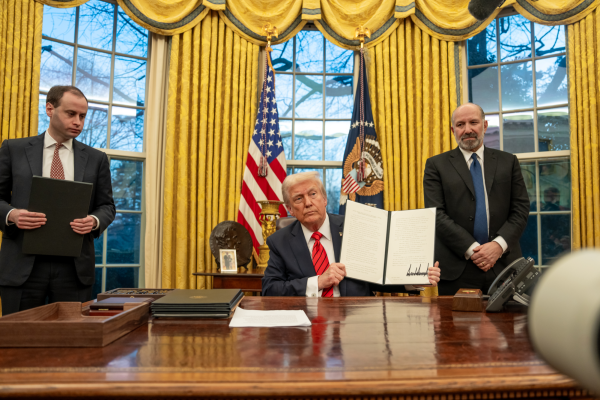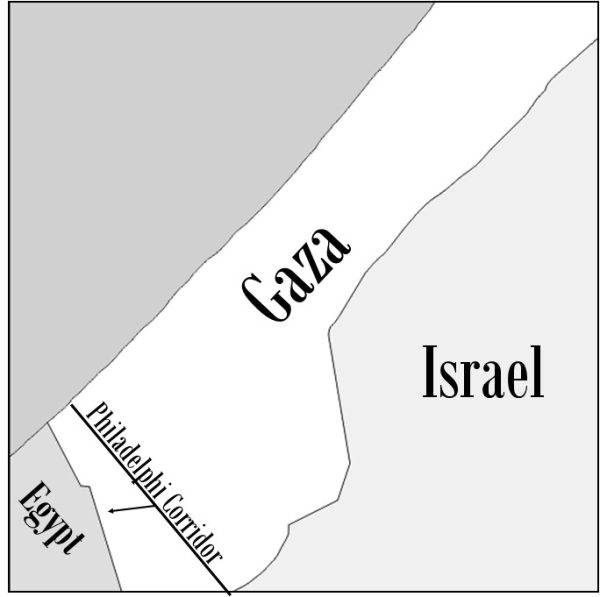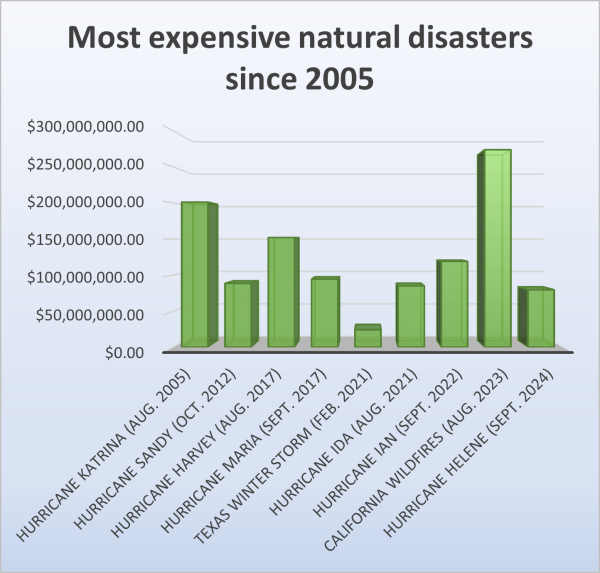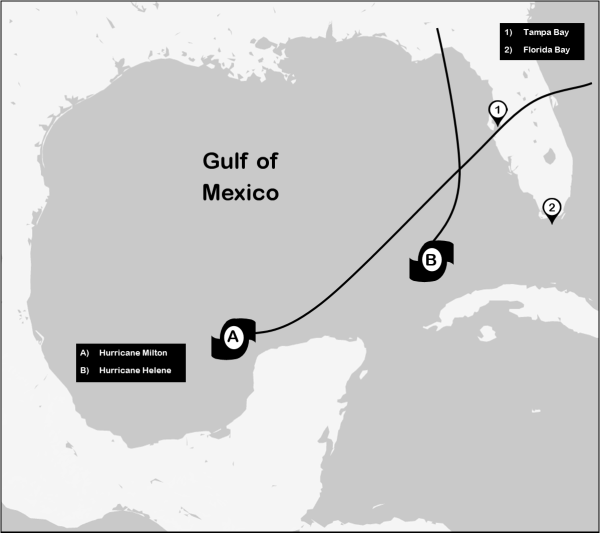Beyond Boone (December 2018 Issue)
Saudi journalist’s assassination prompts investigations
By: Samuel Colmar
The mysterious death of prominent Saudi journalist Jamal Khashoggi broke headlines last month, with the overall consensus being that he was murdered by the Saudi Arabian government.
The journalist had previously worked as a reporter for many notable Saudi news outlets, but fled to the US on self-imposed exile late last year to work as a columnist for the Washington Post. Khashoggi claimed he was being silenced by the Saudi Arabian government, and said they “banned him from twitter.”
Khashoggi was required to visit the Saudi consulate in Istanbul, Turkey, to retrieve a document he needed to marry his then fiancé, Hatice Cengiz. This is where the murder allegedly took place.
Khashoggi was recorded to have originally entered the consulate on Sept. 28 but was told to come back the following week on Oct. 2nd. Cengiz revealed Khashoggi was said to have not believed anything bad would happen to him because the consulate is on Turkish soil.
On Oct. 2nd, 1:14 p.m., Khashoggi reportedly entered the consulate. Nearly two hours later, a body double would be seen wearing Khashoggi’s clothes, a fake beard and glasses leaving through the consulates back door.
Khaled bin Salman, brother of Saudi crown prince Muhammed Bin Salman, wrote in a letter to reporters on Oct. 8 that neither he nor his brother were involved, and Khashoggi left the consulate within the hour he arrived. Officials in Saudi Arabia insisted on this account for two weeks after the disappearance of the journalist.
When this account was revealed by Saudi officials to have been a lie, (likely because of international pressure), Saudi officials changed their story and claimed Khashoggi was killed by an accident following a fight that broke out. Soon after, officials revealed this to be a lie as well.
Finally, on Oct. 22, Adel al-Jubeir, the Foreign Minister of Saudi Arabia, revealed that he, in fact ordered the murder of Khashoggi and denied any involvement from the Saudi royal family.
However, the CIA refuted this claim, releasing an assessment on Nov. 16 revealing that their own investigation concludes that Saudi Crown Prince Mohammed bin Salman did in fact order the assassination of Khashoggi. The reasoning comes after intercepted evidence was presented to officials affiliated with the CIA.
Turkish officials, who conducted their own investigation, have since presented conflicting accounts of those from Saudi Arabia regarding Khashoggi’s murder.
They claim that 15 Saudi agents, nine of whom arrived in a private plane from the Saudi Arabia capital, Riyadh, were tasked with killing the journalist. They also state that the men removed security tapes from inside and around the consulate.
Information on the individuals who allegedly conducted the murder has been made public via the Turkish investigation, with numerous suspects being close to the Saudi kingdom.
Unremoved security footage near the Saudi consulate revealed several vehicles that supposedly carried the Saudi agents arriving at the scene just an hour before the killing allegedly took place. The same vehicles reportedly left just under two hours after Khashoggi entered the building.
On Nov. 15, Saudi prosecutors charged 11 people allegedly involved in the murder, five of whom are facing capitol punishment for “ordering and executing the crime.”
Saudi Arabia’s public prosecutor confirmed the murder was indeed premeditated.
At this time, Jamal Khashoggi’s body has not been found.
Turkish and Saudi officials are said to be co-operating to find what happened to the journalist.
Pres. elect in Brazil sparks controversy
By: Sam Holbrook
Controversial right-wing candidate Jair Bolsonaro has been elected to be Brazil’s next president after defeating candidate Fernando Haddad, receiving 55.2 percent of the votes on Oct.7.
During Bolsonaro‘s campaign, he was criticized for his controversial claims and promises, such as pledging to open up the inner Amazon forests to logging companies. Considering a large portion of the forest is in Brazil, his comments angered environmentalists.
Bolsonaro holds other traditionally conservative positions: he has expressed support for gun rights, anti-abortion, and a traditional definition of marriage.
Opponents have labeled Bolsonaro a fascist threat, fearing his election into office mirrors other trends happening worldwide.
Bolsonaro has reportedly talked to Donald Trump, another controversial right-wing figure within the world, finding common ground with him.
Trump has tweeted out that he and Bolsonaro have agreed that Brazil and the U.S. will work closely together in trade, military, and “everything else.”
Bolsonaro has responded to criticisms by saying to Brazilians and the world that he just wants to pull Brazil out of the hole it had fallen into within the past 16 years.
Bolsonaro began his career by serving in the Brazilian army from 1973 to 1988 before serving 27 years as a federal congressman in Brazil under the Social Christian Party, which helped pave a path towards his soon-to-be presidency.
For some, his rise reminds them of other Latin American countries that were led by military strongmen.
Whether Bolsonaro turns out to be a threat to Brazilian democracy or just the man Brazil needs to battle long-standing corruption in the country will be seen in the coming year.
On Jan.1, Bolsonaro will be sworn into office.
Cease fire called in ‘Yemeni Civil War’
By: Samuel Colmar
A 30-day cease fire on the war in Yemen was called by leaders around the globe late October, asking all parties involved to halt conflict as the tensions continued rising.
U.S. Secretary of State Mike Pompeo, his British coequal Jeremy Hunt, and U.S. Secretary of Defense James Mattis collectively proposed the standstill as relations with Saudi Arabia, a major contributor in the war, begin to cool after recent incidents.
“It is time to end this conflict, replace conflict with compromise, and allow the Yemeni people to heal through peace and reconstruction,” Pompeo said in a statement released on Oct. 30.
The war in Yemen, or “Yemeni Civil War,” began in 2015 between two factions, the Houthi militia and the incumbent Yemeni government over that controlled the country. Fearful that the Houthi militia would win the war and threaten their southern border, Saudi Arabia involved itself and has remained an active party ever since.
The brutal war tactics practiced in the war have resulted in rampant disease, extreme famine, and 10,000 civilian deaths (though many believe the figure to be much larger). Airstrikes from both Saudi Arabia and the Houthi militia were outed by Pompeo, who urged that they “must cease in all populated areas in Yemen.”
Despite the urge for a cease fire, advances by the parties involved are expected to continue. As of the beginning of November, 150 people have reported to been killed in the war, with nearly a third being civilians.
